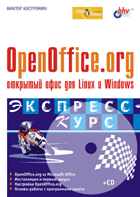Библиотека сайта rus-linux.net
Next: The GNU General Public Up: The Network Administrators' Guide Previous: A Null Printer Cable
Sample smail Configuration Files
This section shows sample configuration files for a UUCP leaf site on a local area network. They are based on the sample files included in the source distribution of smail-3.1.28. Although I make a feeble attempt to explain how these files work, you are advised to read the very fine smail(8) manual page, which discusses these files in great length. Once you've understood the basic idea behind smail configuration, it's worthwhile reading. It's easy!
The first file shown is the routers file, which describes a set of routers to smail. When smail has to deliver a message to a given address, it hands the address to all routers in turn, until one of them matches it. Matching here means that the router finds the destination host in its database, be it the paths file, /etc/hosts, or whatever routing mechanism the router interfaces to.
Entries in smail configuration files always begin with a unique name identifying the router, transport, or director. They are followed by a list of attributes that define its behavior. This list consists of a set of global attributes, such as the driver used, and private attributes that are only understood by that particular driver. Attributes are separated by commas, while the sets of global and private attributes are separated from each other using a semicolon.
To make these fine distinctions clear, assume you want to maintain two separate pathalias files; one containing the routing information for your domain, and a second one containing global routing information, probably generated from the UUCP maps. With smail, you can now specify two routers in the routers file, both of which use the pathalias driver. This driver looks up hostnames in a pathalias database. It expects to be given the name of the file in a private attribute:
The second global attribute given in each of the two routers entries above defines the transport that should be used when the router matches the address. In our case, the message will be delivered using the uux transport. Transports are defined in the transports file, which is explained below.
You can fine-tune by which transport a message will be delivered if you specify a mathod file instead of the transports attribute. Method files provide a mapping from target hostnames to transports. We won't deal with them here.
The following routers file defines routers for a local area network that query the resolver library. On an Internet host, however, you would want to use a router that handles MX records. You should therefore uncomment the alternative inet_bind router that uses smail's built-in BIND driver.
In an environment that mixes UUCP and TCP/IP, you may encounter the problem that you have hosts in your /etc/hosts file that you have only occasional SLIP or PPP contact with. Usually, you would still want to send any mail for them over UUCP. To prevent the inet_hosts driver from matching these hosts, you have to put them into the paths/force file. This is another pathalias-style database, and is consulted before smail queries the resolver.
The handling of mail for local addresses is configured in the directors file. It is made up just like the routers file, with a list of entries that define a director each. Directors do not deliver a message, they merely perform all the redirection that is possible, for instance through aliases, mail forwarding, and the like.
When delivering mail to a local address, such as janet, smail passes the usr name to all directors in turn. If a director matches, it either specifies a transport the message should be delivered by (for instance, to the user's mailbox file), or generates a new address (for instance, after evaluating an alias).
Because of the security issues involved, directors usually do a lot of checking of whether the files they use may be compromised or not. Addresses obtained in a somewhat dubious way (for instance from a world-writable aliases file) are flagged as insecure. Some transport drivers will turn down such addresses, for instance the transport that delivers a message to a file.
Apart from this, smail also associates a user with each address. Any write or read operations are performed as the user. For delivery to, say janet's mailbox, the address is of course associated with janet. Other addresses, such as those obtained from the aliases file, have other users associated from them, for instance, the nobody user.
For details of these features, please refer to the smail(8) manpage.
After successfully routing or directing a message, smail hands the message to the transport specified by the router or director that matched the address. These transports are defined in the transports file. Again, a transport is defined by a set of global and private options.
The most important option defined by each entry is driver that handles the transport, for instance the pipe driver, which invokes the command specified in the cmd attribute. Apart from this, there are a number of global attributes a transport may use, that perform various transformations on the message header, and possibly message body. The return_path attribute, for instance, makes the transport insert a return_path field in the message header The unix_from_hack attribute makes it precede every occurrence of the word From at the beginning of a line with a > sign.
# A sample /usr/lib/smail/transports file
# local - deliver mail to local users
local: driver=appendfile, # append message to a file
return_path, # include a Return-Path: field
from, # supply a From_ envelope line
unix_from_hack, # insert > before From in body
local; # use local forms for delivery
file=/var/spool/mail/${lc:user}, # location of mailbox files
group=mail, # group to own file for System V
mode=0660, # group mail can access
suffix="\n", # append an extra newline
# pipe - deliver mail to shell commands
pipe: driver=pipe, # pipe message to another program
return_path, # include a Return-Path: field
from, # supply a From_ envelope line
unix_from_hack, # insert > before From in body
local; # use local forms for delivery
cmd="/bin/sh -c $user", # send address to the Bourne Shell
parent_env, # environment info from parent addr
pipe_as_user, # use user-id associated with address
ignore_status, # ignore a non-zero exit status
ignore_write_errors, # ignore write errors, i.e., broken pipe
umask=0022, # umask for child process
-log_output, # do not log stdout/stderr
# file - deliver mail to files
file: driver=appendfile,
return_path, # include a Return-Path: field
from, # supply a From_ envelope line
unix_from_hack, # insert > before From in body
local; # use local forms for delivery
file=$user, # file is taken from address
append_as_user, # use user-id associated with address
expand_user, # expand ~ and $ within address
suffix="\n", # append an extra newline
mode=0600, # set permissions to 600
# uux - deliver to the rmail program on a remote UUCP site
uux: driver=pipe,
uucp, # use UUCP-style addressing forms
from, # supply a From_ envelope line
max_addrs=5, # at most 5 addresses per invocation
max_chars=200; # at most 200 chars of addresses
cmd="/usr/bin/uux - -r -a$sender -g$grade $host!rmail $(($user)$)",
pipe_as_sender, # have uucp logs contain caller
log_output, # save error output for bounce messages
# defer_child_errors, # retry if uux returns an error
# demand - deliver to a remote rmail program, polling immediately
demand: driver=pipe,
uucp, # use UUCP-style addressing forms
from, # supply a From_ envelope line
max_addrs=5, # at most 5 addresses per invocation
max_chars=200; # at most 200 chars of addresses
cmd="/usr/bin/uux - -a$sender -g$grade $host!rmail $(($user)$)",
pipe_as_sender, # have uucp logs contain caller
log_output, # save error output for bounce messages
# defer_child_errors, # retry if uux returns an error
# hbsmtp - half-baked BSMTP. The output files must
# be processed regularly and sent out via UUCP.
hbsmtp: driver=appendfile,
inet, # use RFC 822-addressing
hbsmtp, # batched SMTP w/o HELO and QUIT
-max_addrs, -max_chars; # no limit on number of addresses
file="/var/spool/smail/hbsmtp/$host",
user=root, # file is owned by root
mode=0600, # only read-/writable by root.
# smtp - deliver using SMTP over TCP/IP
smtp: driver=tcpsmtp,
inet,
-max_addrs, -max_chars; # no limit on number of addresses
short_timeout=5m, # timeout for short operations
long_timeout=2h, # timeout for longer SMTP operations
service=smtp, # connect to this service port
# For internet use: uncomment the below 4 lines
# use_bind, # resolve MX and multiple A records
# defnames, # use standard domain searching
# defer_no_connect, # try again if the nameserver is down
# -local_mx_okay, # fail an MX to the local host
Next: The GNU General Public Up: The Network Administrators' Guide Previous: A Null Printer Cable Andrew Anderson
Thu Mar 7 23:22:06 EST 1996






